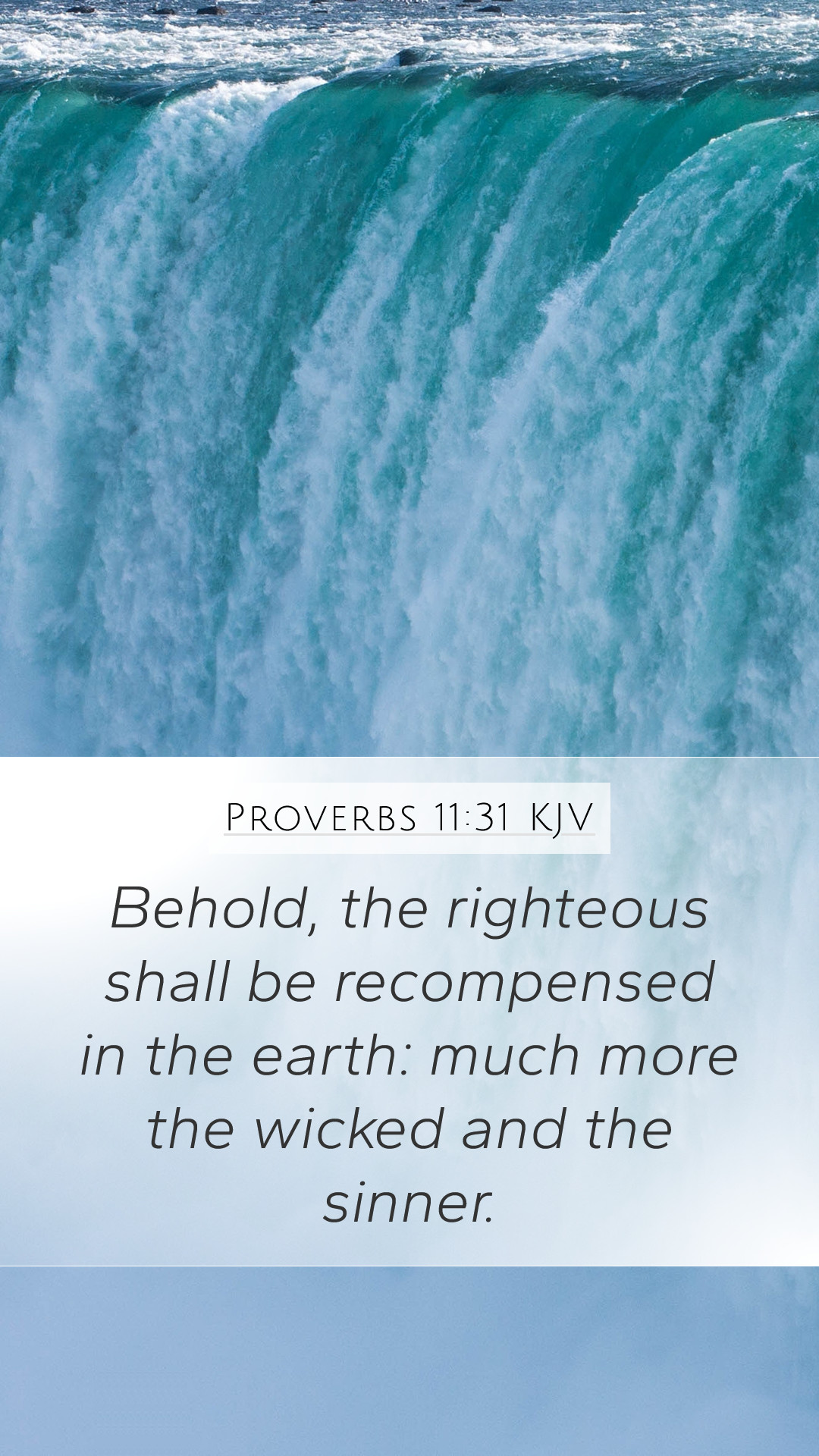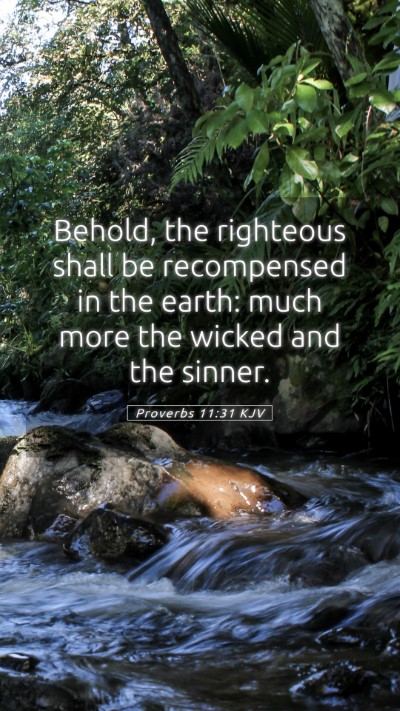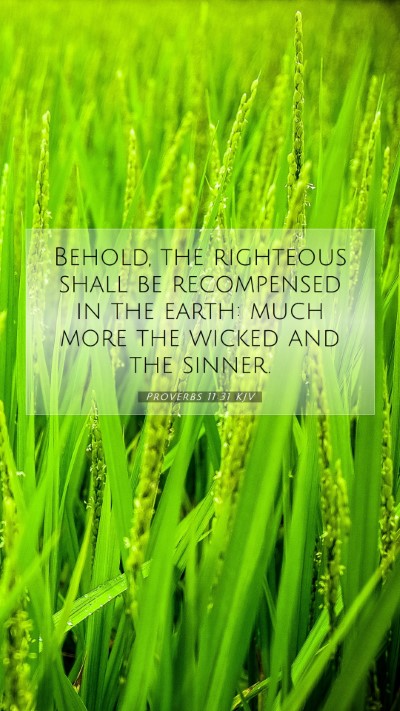Bible Verse Meaning for Proverbs 11:31
Bible Verse: Proverbs 11:31
"If the righteous receives their due on earth, how much more the wicked and the sinner!"
The verse Proverbs 11:31 provides profound insights into the moral and spiritual law governing the world. Through careful examination of public domain commentaries by noted theologians such as Matthew Henry, Albert Barnes, and Adam Clarke, we arrive at a deeper understanding of this assertion.
Contextual Understanding of Proverbs 11:31
The verse resides within the broader context of the Book of Proverbs, which serves as a collection of wisdom literature that offers practical guidance for righteous living. Throughout this book, the consequences of moral conduct are addressed extensively.
Moral Implications
- Righteousness and its Rewards: Matthew Henry emphasizes that this statement reflects the principle of divine justice, where the righteous are rewarded for their good deeds, even in this life.
- Punishment of the Wicked: Albert Barnes highlights that if even the righteous receive their just deserts, surely the wicked and sinners will face appropriate consequences as well, reinforcing God's role as a judge of moral actions.
- The Balance of Justice: Adam Clarke elaborates on the idea that this verse underlines a cosmic order where righteousness will not go unrewarded, and unrighteousness will not go unpunished.
Spiritual Reflection
The implication of this verse invites deeper introspection into the nature of justice both in earthly life and in the hereafter. This forms a critical aspect of Bible verse explanations and assists individuals in understanding how righteous living correlates with promise of divine reward.
The Nature of Justice
This verse serves to highlight the broader theological principle of justice, illustrating that God's governance over moral order of the universe ensures that righteousness is rewarded.
Cross References
Proverbs 11:31 resonates with several other scriptures that depict divine justice and moral order. Here are a few significant cross-references:
- Job 4:8: "As I have observed, those who plow evil and those who sow trouble reap it."
- Galatians 6:7: "Do not be deceived: God cannot be mocked. A man reaps what he sows."
- Psalm 1:6: "For the Lord watches over the way of the righteous, but the way of the wicked leads to destruction."
Application in Daily Life
In terms of practical application, this verse encourages believers to remain steadfast in righteousness, trusting that their faithful living will yield positive outcomes, both spiritually and materially. This keeps them focused on Bible study insights that reinforce the importance of moral integrity.
Encouragement for Bible Study Groups
For those engaging in Bible study groups or online Bible study, this verse offers rich discussion material around the themes of justice, morality, and the consequences of one's actions. It lays a strong foundation for discussions surrounding Bible study lessons on righteousness.
Further Study and Reflection
This verse invites believers to reflect on their own lives, entreating them to continually seek the meaning of Bible verses and apply them with diligence as they navigate the complexities of daily life.
Conclusion
Proverbs 11:31 serves as a potent reminder of the moral order established by God. The insights provided by the commentaries of Henry, Barnes, and Clarke elucidate the responsibilities of the righteous and the inevitable justice that awaits the wicked. Therefore, this verse compels believers to engage in deeper Biblical exegesis and ongoing exploration of Scripture.
Through understanding and applying the insights from Proverbs 11:31, one can derive empowering lessons about living a life of integrity that aligns with God's expectations. This pursuit encourages not only personal growth but also facilitates valuable insights for those involved in Bible study resources.


